Filter by
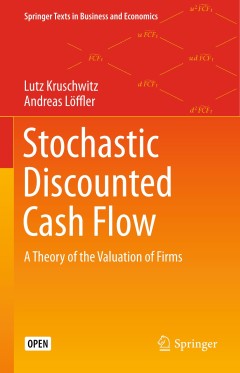
Stochastic discounted cash flow : a theory of the valuation of firms
This open access book discusses firm valuation, which is of interest to economists, particularly those working in finance. Firm valuation comes down to the calculation of the discounted cash flow, often only referred to by its abbreviation, DCF. There are, however, different coexistent versions, which seem to compete against each other, such as entity approaches and equity approaches. Acronyms …
- Edition
- -
- ISBN/ISSN
- 9783030370817
- Collation
- xxii, 241p. : ill.
- Series Title
- -
- Call Number
- 339 KRU s
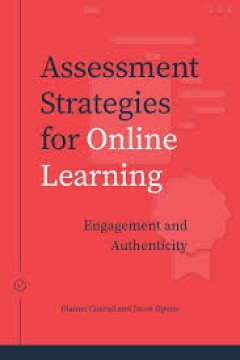
Assessment strategies for online learning: engagement and authenticity
For many learners, assessment conjures up visions of red pens scrawling percentages in the top right-hand corner of exams and feelings of stress, inadequacy, and failure. Although learners sometimes respond negatively to evaluation, assessments have provided educational institutions with important information about learning outcomes and the quality of education for many decades. But how accurat…
- Edition
- -
- ISBN/ISSN
- 9781771992336
- Collation
- xiii, 203 p.; 22 cm.
- Series Title
- -
- Call Number
- 371.26 CON a
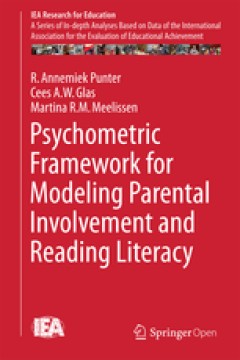
Psychometric framework for modeling parental involvement and reading literacy
This volume offers insights from modelling measures of parental involvement and their relationship with student reading literacy across countries, exploring and incorporating cultural differences. This is a significant contribution to a field where cross-cultural comparisons from a triangulated perspective are sparse. For readers interested in exploring the relationship between parental involve…
- Edition
- -
- ISBN/ISSN
- 9783319287102
- Collation
- 97 p.; 22 cm.
- Series Title
- IEA Research for Education
- Call Number
- 371.26 GLA p

Becoming citizens in a changing world : IEA International Civic and Citizensh…
This open access book presents the results from the second cycle of the IEA International Civic and Citizenship Education Study (ICCS 2016). Using data from 24 countries in Asia, Europe and Latin America, the study investigates the ways in which young people are prepared to undertake their roles as citizens in a range of countries in the second decade of the 21st century. It also responds to th…
- Edition
- -
- ISBN/ISSN
- 9783319739632
- Collation
- xxi, 243p. : ill.
- Series Title
- -
- Call Number
- 371.26 BEC b
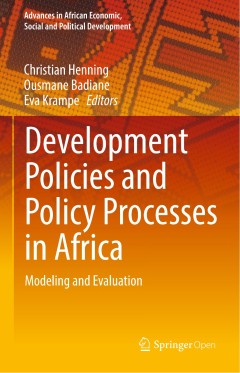
Development policies and policy processes in Africa : modeling and evaluation
The book examines the methodological challenges in analyzing the effectiveness of development policies. It presents a selection of tools and methodologies that can help tackle the complexities of which policies work best and why, and how they can be implemented effectively given the political and economic framework conditions of a country. The contributions in this book offer a continuation of …
- Edition
- -
- ISBN/ISSN
- 9783319607146
- Collation
- xv, 351p. : ill.
- Series Title
- -
- Call Number
- 338.96 DEV d
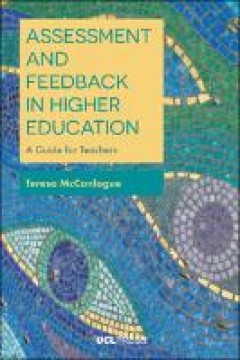
Thick evaluation
"We use evaluative terms and concepts every day. We call actions right and wrong, teachers wise and ignorant, and pictures elegant and grotesque. Philosophers place evaluative concepts into two camps. Thin concepts, such as goodness and badness, and rightness and wrongness have evaluative content, but they supposedly have no or hardly any nonevaluative, descriptive content: they supposedly give…
- Edition
- First edition.
- ISBN/ISSN
- 9780198803430
- Collation
- xi, 198 pages ; 24 cm
- Series Title
- -
- Call Number
- 170.42 KIR t
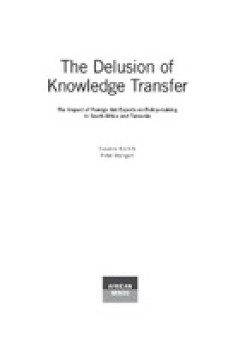
The delusion of knowledge transfer : the impact of foreign aid experts on pol…
With the rise of the ‘knowledge for development’ paradigm, expert advice has become a prime instrument of foreign aid. At the same time, it has been object of repeated criticism: the chronic failure of ‘technical assistance’ – a notion under which advice is commonly subsumed – has been documented in a host of studies. Nonetheless, international organisations continue to send advisor…
- Edition
- -
- ISBN/ISSN
- 9781928331391
- Collation
- XI, 383 p
- Series Title
- -
- Call Number
- 330.968 KOC d

Digital writing assessment & evaluation
Writing has changed due to the affordances of digital technologies, and writing assessment has changed as well. As writing programs integrate more digital writing work, students, teachers, and administrators face the rewards and challenges of assessing and evaluating multimodal and networked writing projects. Whether classroom-based or program-level; whether in first-year writing, technical com…
- Edition
- -
- ISBN/ISSN
- 9780874219494
- Collation
- -
- Series Title
- -
- Call Number
- 411 DIG d
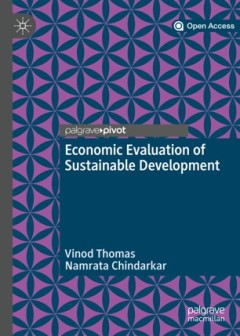
Economic evaluation of sustainable development
This book presents methods to evaluate sustainable development using economic tools. The focus on sustainable development takes the reader beyond economic growth to encompass inclusion, environmental stewardship and good governance. Sustainable Development Goals (SDGs) provide a framework for outcomes. In illustrating the SDGs, the book employs three evaluation approaches: impact evaluatio…
- Edition
- -
- ISBN/ISSN
- 9789811363894
- Collation
- xxiii, 145p. : ill.
- Series Title
- -
- Call Number
- 338.927 THO e
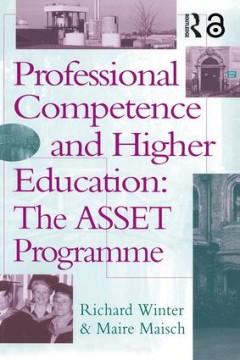
Professional competence and higher education : the ASSET programme
First published in 1996. Routledge is an imprint of Taylor & Francis, an informa company.
- Edition
- -
- ISBN/ISSN
- 9780203973165
- Collation
- xii, 207p. : ill.
- Series Title
- -
- Call Number
- 378.0130941 WIN p
 Computer Science, Information & General Works
Computer Science, Information & General Works  Philosophy & Psychology
Philosophy & Psychology  Religion
Religion  Social Sciences
Social Sciences  Language
Language  Pure Science
Pure Science  Applied Sciences
Applied Sciences  Art & Recreation
Art & Recreation  Literature
Literature  History & Geography
History & Geography